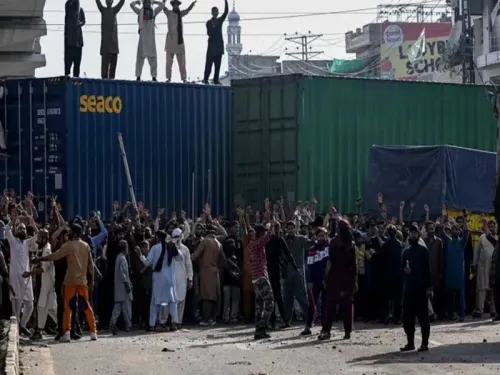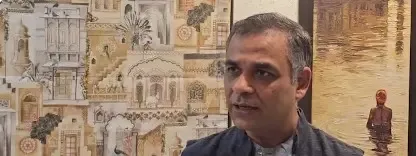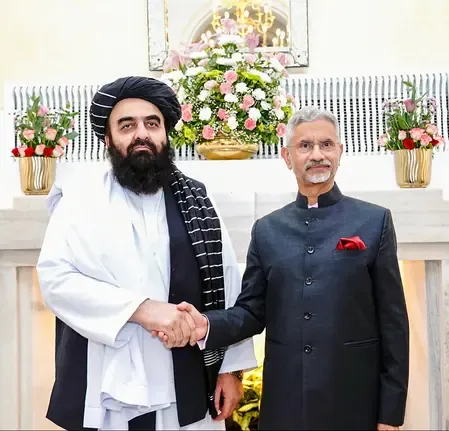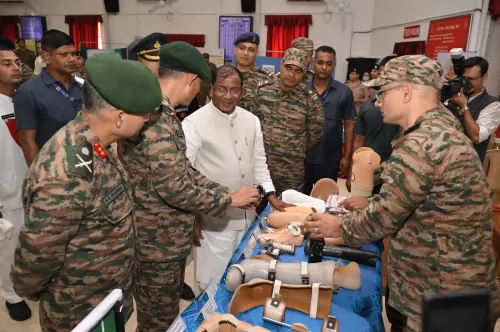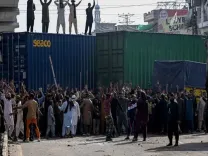Why Did HM Amit Shah Defend the CAA and Demographic Changes?
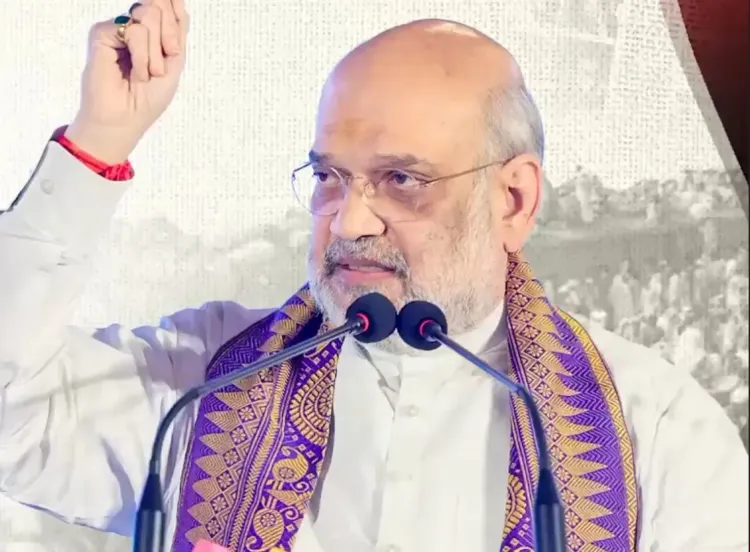
Synopsis
Key Takeaways
- Citizenship for Persecuted Minorities: The CAA is aimed at providing citizenship to religious minorities facing persecution.
- Historical Context: The act is presented as a fulfillment of promises made by past leaders.
- Demographic Concerns: Infiltration is seen as a critical issue affecting India's demographics.
- Opposition Misinformation: Shah emphasized the need to combat misinformation regarding the CAA.
- National Security: The government aims to separate refugees from illegal immigrants.
New Delhi, Oct 10 (NationPress) Union Home Minister Amit Shah emphasized that providing citizenship to persecuted minorities—Hindus, Sikhs, Christians, Buddhists, Jains, and Parsis—from Pakistan, Afghanistan, and Bangladesh fulfills a historical promise made by India’s leaders.
This commitment has been realized through the Citizenship Amendment Act (CAA) under the stewardship of Prime Minister Narendra Modi.
HM Shah accused opposition parties of disseminating misinformation regarding the CAA, asserting that it rectifies decades of governance failures by providing sanctuary to those enduring religious persecution in neighboring nations post-independence.
He stressed that every minority victim of such oppression has a legitimate claim to refuge in India, clearly differentiating between refugees and infiltrators—those who enter illegally for economic or other motives.
"India is a nation, not a dharamshala," HM Shah proclaimed, underscoring the obligation to prevent illegal entries. He expressed concerns about demographics, indicating that while Gujarat and Rajasthan are border states, West Bengal has turned into a hotspot for infiltration due to "vote bank politics."
HM Shah also condemned the Congress-led partition on religious grounds as a significant blunder, linking it to contemporary challenges and advocating for the Election Commission's Special Intensive Revision (SIR) as a constitutional necessity to cleanse voter lists.
Union Home Minister Amit Shah delivered a thorough address at the Jagran Sahitya Srijan Samman ceremony, organized by Dainik Jagran to honor the birth anniversary of its late editor and author, Narendra Mohan.
HM Shah commenced by paying homage to Narendra Mohan, reminiscing about his contributions to journalism and freedom during the Emergency period when Mohan was imprisoned for opposing censorship.
Sharing a personal story, HM Shah recounted how he enhanced his Hindi skills during a tough time in 2010 by translating Dainik Jagran's front page into Gujarati daily for 560 days while staying at Gujarat Bhawan in Delhi.
"This exercise helped me improve my Hindi, and I attribute it to Narendra Mohan ji's legacy," HM Shah stated, highlighting the importance of literature, culture, and language in shaping national identity.
He referenced historical commitments from leaders like Jawaharlal Nehru under the Nehru-Liaquat Pact, arguing that these refugees, fleeing religious persecution, have been denied rights for generations.
HM Shah sharply distinguished between refugees and infiltrators, noting that the former arrive due to religious oppression while the latter enter illegally for economic or other reasons.
Citing census data from 1951 to 2011, HM Shah indicated a decline in India's Hindu population from 84% to 79% and a rise in the Muslim population from 9.8% to 14.2%, attributing this primarily to infiltration rather than birth rates.
He pointed out drastic reductions in minority populations in neighboring countries: Hindus in Pakistan fell from 13% to 1.73%, in Bangladesh from 22% to 7.9%, and in Afghanistan from 220,000 to just 150.
He outlined the Modi government's "3D policy"—Detect, Delete (from voter lists), and Deport—to tackle infiltration.
HM Shah also supported the Election Commission's Selective Identification of Residents (SIR) process as a constitutional obligation to ensure fair elections, dismissing opposition resistance as self-serving.
Additionally, HM Shah announced a high-powered demographic mission to investigate the impacts of illegal migration on social, religious, and economic life, along with border management.
The event, attended by Dainik Jagran editor Sanjay Gupta and Prasoon Joshi, highlighted the intersection of literature and national discourse.
HM Shah urged citizens to prioritize facts over propaganda, affirming that protecting India's cultural and democratic fabric remains paramount.

